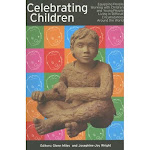 "No printed word, nor spoken plea can teach young minds what they should be. Not all the books on all the shelves – but what the teachers are themselves."
"No printed word, nor spoken plea can teach young minds what they should be. Not all the books on all the shelves – but what the teachers are themselves." Rudyard Kipling
role model: n. A person looked to by others as an example in a particular role or situation. (Concise Oxford - 9th Edition)
I am currently trying to work my way through a short essay on teaching and learning. Can't say it's the most exciting way to spend the Easter weekend. Still, while doing some research I came across the above quote, used in this article. Some of the results in the research mentioned, though unsurprising, are certainly interesting and relevant to educators and Christians alike.
The research from the article expressed the fact that most children and young people identified their role models first and foremost as the people closest to them in their circle of family and friends. Celebrities and media figures came after these in terms of significant influence. Daniel Rose suggests that this is because, "The gap between theory and practice is bridged, as ideological concepts become realities before the eyes of the students. Once they have truly understood an idea, because they have seen it at first hand...they are only then in a true position to judge its validity to their life, and then make the relevant lifestyle decision." An interesting and somewhat scary thought. After reading this I considered the most significant role models in my life and, agreeing with the research of Anton Bucher, I found that these were in fact the people closest to me in my circle of family and friends. These people are from whom I have sought help or advice from, talked to about their values and have then seen for myself the validity and integrity of what they do in practice. This has then in some shape or form influenced the decisions I have made in my own life. I think that teachers, as Rose suggests, can have an incredible influence over their pupils and not one that they should use without consideration. With ACfE focusing on values and lifestyle pupils will seek to establish role models and identify the connection between theory and practice in the lives of their teachers. This is a huge responsibility, because if the practice of the teacher cannot be justified according to the values they are trying to pass on, their integrity will lie in tatters and I imagine that the pupils' respect will be lost. However, this also has huge implications for us as Christians too. The words that we say and the faith that we profess can be powerful, but those who wish to inspect our faith more closely will probably seek to evaluate the link between our thoughts and our actions. If this link is somewhat tenuous then not only will our integrity be at stake but our witness could be catastrophically tainted.
Rose says that, "Children, especially during adolescence – their most vulnerable and impressionable age - are in need of role models, and take them from all areas that are close at hand". This then begs the question, what kind of role models do our children find in church? A scary question and when children are honest in their opinions we sometimes dislike the answer. Children will not only look for role models in individuals but will also look at the church corporately. I suspect that they will notice where the church as a whole fails to put in to practice the value of children that they profess to have. I suspect that they will notice when a commitment to making church enjoyable and accessible to younger people is lost in translation between word and action. We can teach them about the example that Jesus sets, but I feel that the integrity of our teaching can be seriously diminished where we as individuals and as a church fail to live this out in our own lives. A case study I recently examined showed that a primary 5 pupil knew that, despite the teacher talking about fairness and equality, she only directed questions to children who were likely to know the answers. If children can spot the difference then we are presented with a huge challenge - a challenge not only for those who work with children. If we wish to be good role models for our children, in church and in life, then it requires integrity, honesty and commitment. Let's be the kind of role models that Jesus taught us to be. Perfect? We are not. Honest? We can be. Good role models? Let's find out.




No comments:
Post a Comment